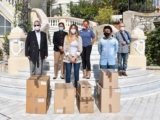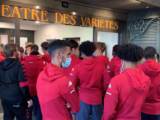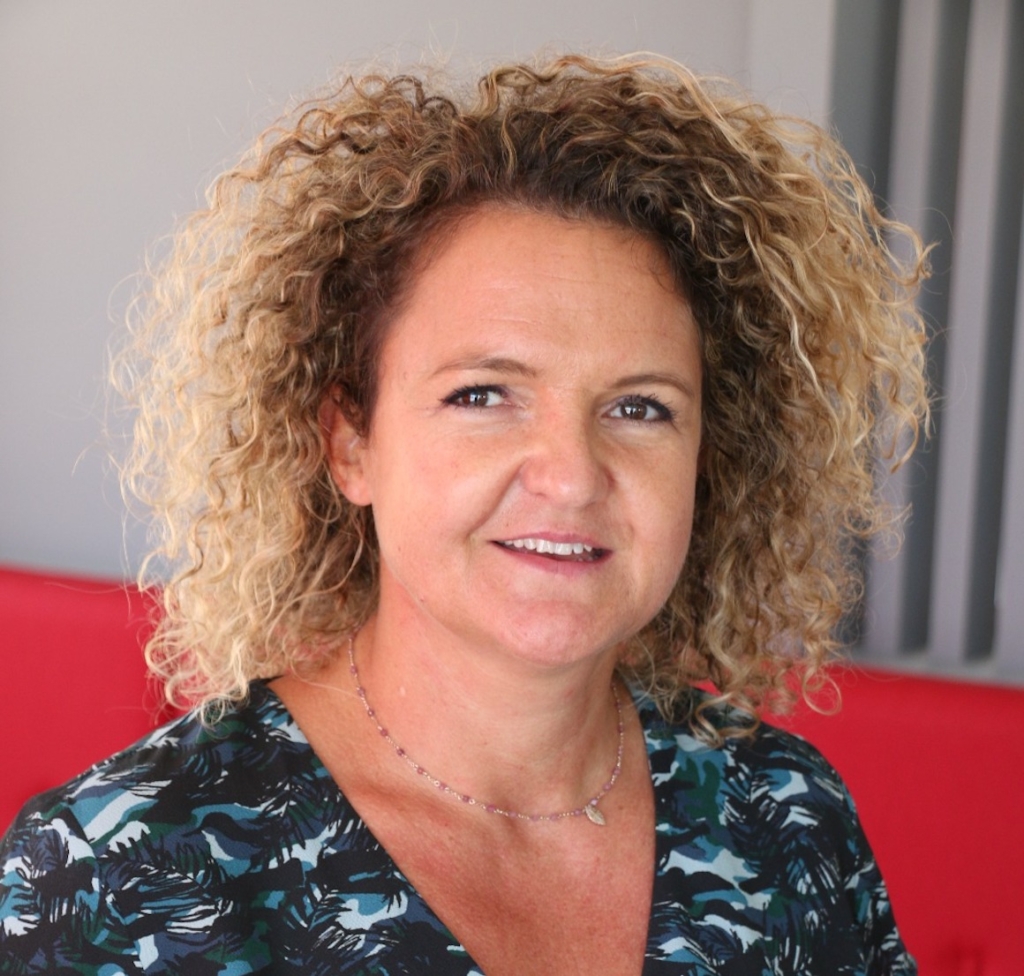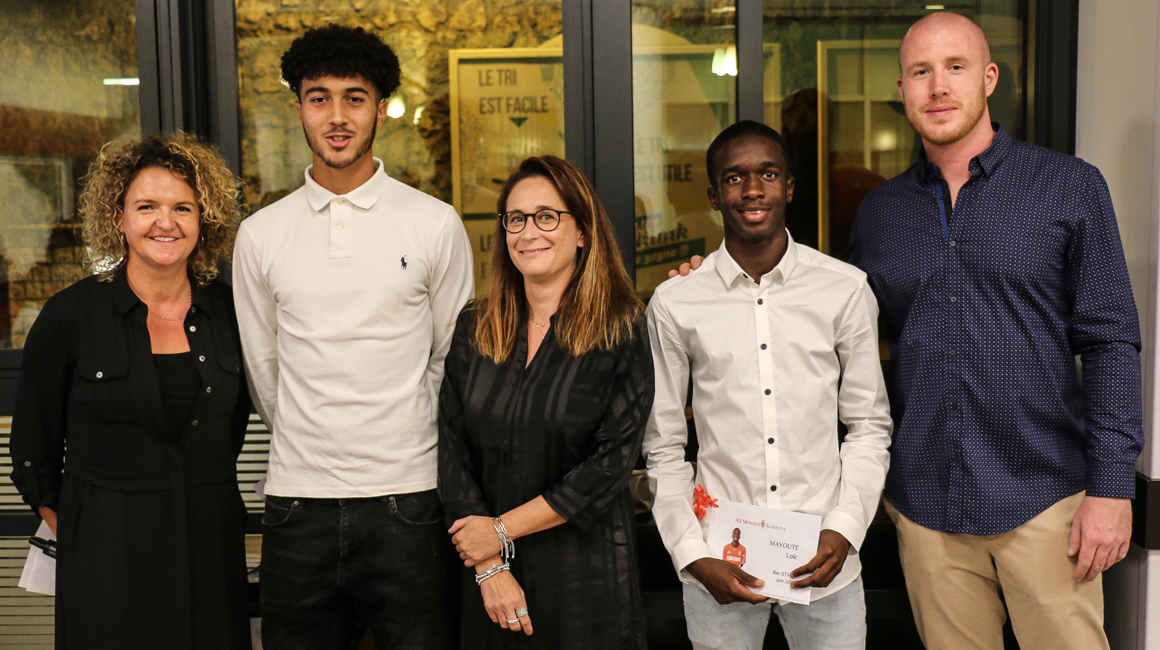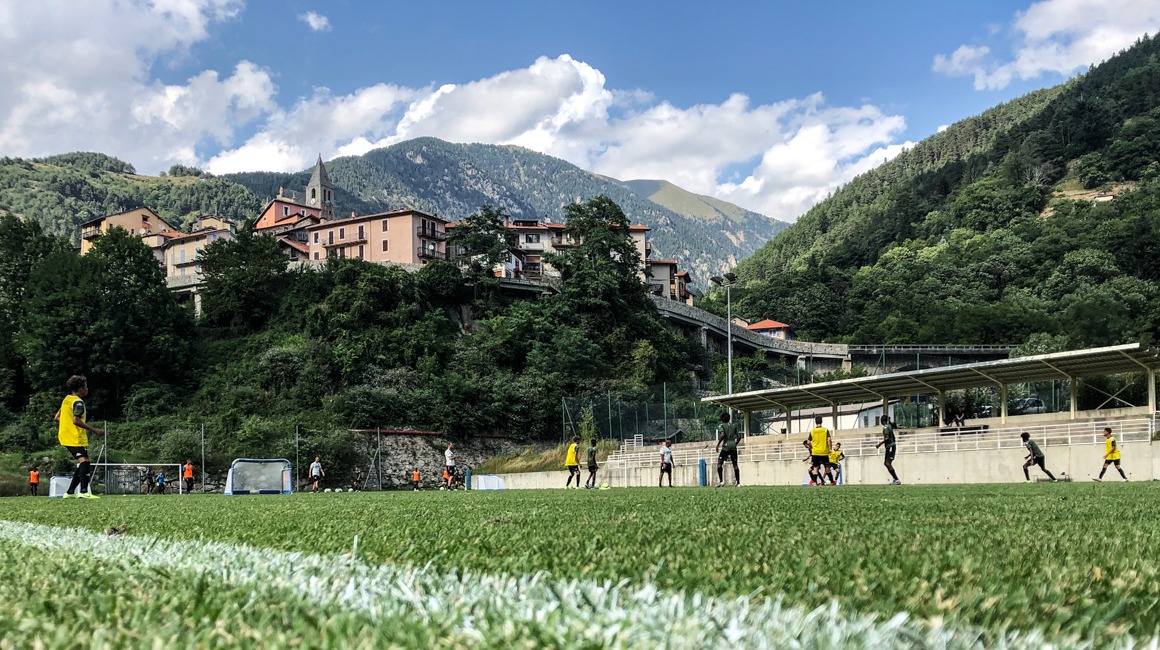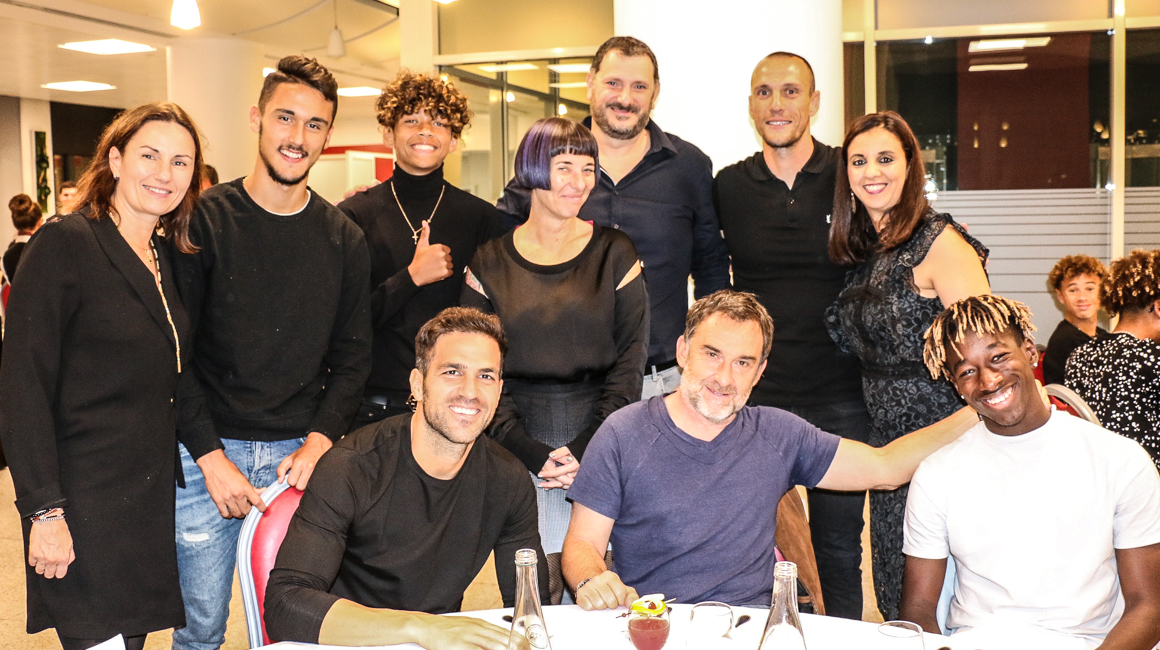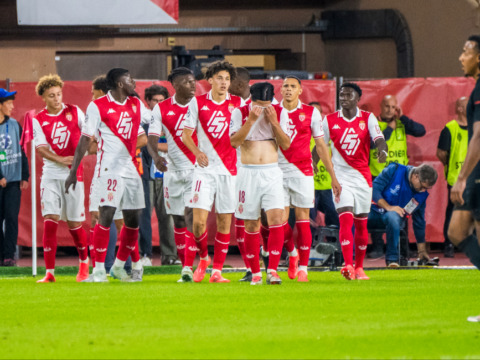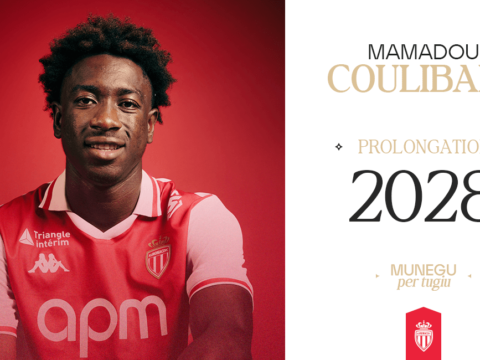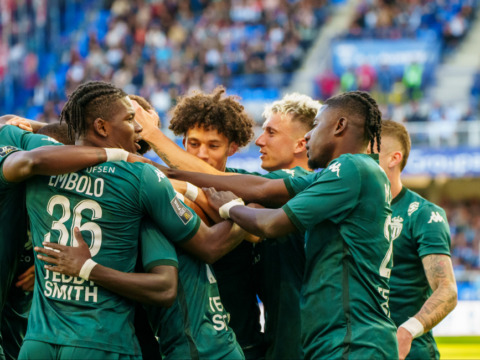Virginie Gollino: "Education is at the heart of the Academy at AS Monaco"
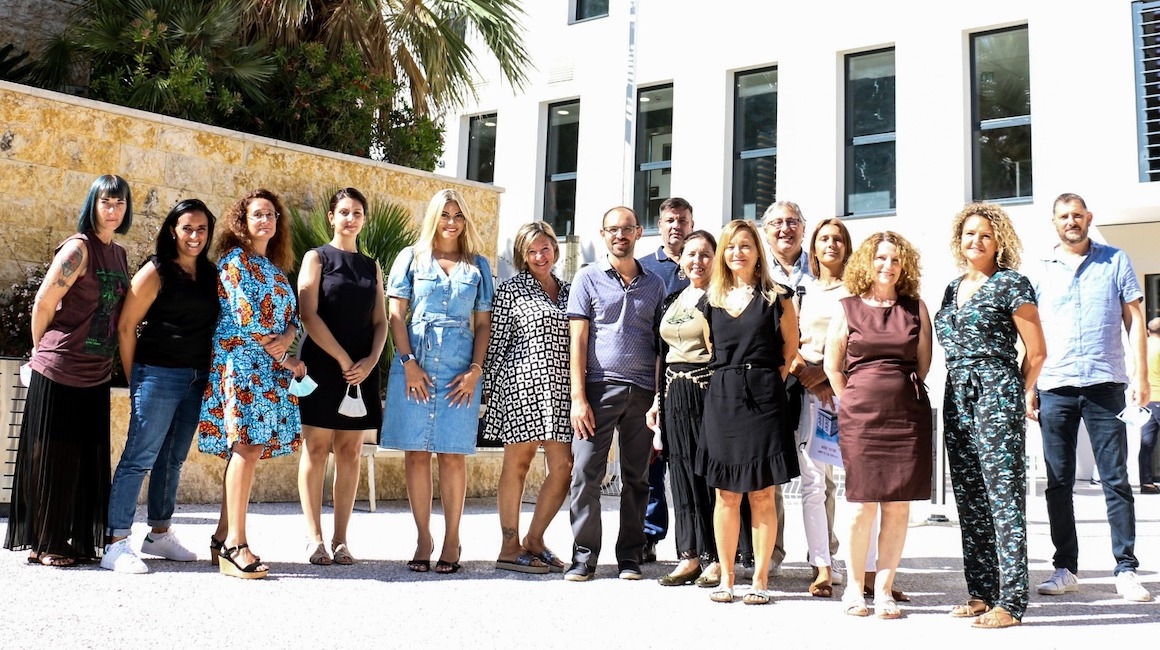
Having arrived at AS Monaco eight years ago, Virginie Gollino is the head of education at the Club, which benefits from a high school fully integrated into its training center, with the status of a private establishment.
For eight years at the service of young people
Installed in an office on the ground floor at La Diagonale, a few meters from the various classrooms, the person responsible for watching over the academics on a daily basis tells us about her daily life and what is in place to ensure that young people don’t forget the importance of their schooling despite their many hours of training. Interview.
Hello Virginie. First of all, if we compare to many other professional clubs, it is a real specificity for AS Monaco to have the education part fully integrated into the training center …
It’s true that few clubs do. The students have the school fully integrated within La Diagonale. This ranges from the third grade, to the BTS MCO (Operational Commercial Management). We have several streams that lead into the baccalaureate program, from the second to the final: professional commerce, STMG with an option in marketing and an option in management, and finally a general baccalaureate with most of the time focusing on scientific and economic subjects.
How long has this type of education been in place?
It’s been a long time. When I arrived eight years ago, we continued to develop what was already in place. Before, it stopped at the first level, but we now give young people the opportunity to obtain a professional baccalaureate and then continue on a BTS if they have a good level after earning their baccalaureate.
Is that something you emphasize, in view of the players’ second career or if the youngster is failing to break through?
The player’s primary goal is obviously to be a footballer, but he also has to think about after his career. Whoever does not succeed, or who will have a smaller career that will not be enough for him to live, will be forced to work. This allows them to have baggage. We want our players to have a baccalaureate, because without it, it is not possible to continue studying. If they don’t continue now, they will have to be able to resume later. Today, even for a coaching diploma, the baccalaureate level is required.
Is having this centralization an asset to reassure the parents of the players?
The fact that the structure is integrated and that we have good exam results helps, indeed. Since this year, we have also set up a medico-school commission, which is a first, I believe, in France. Even before the youngsters arrive, we look at their files and get in touch with the families, targeting those who could potentially be in a little more in difficulty in order to help them with schooling as soon as they arrive. It has been a few years since we started to structure this but it will take its full level this year.
To summarize these first lines, can we therefore say that we have a college and a high school integrated into AS Monaco?
High school especially, yes, as we also do higher education, going up to the BTS. Normally when players arrive they are in their second year. But sometimes there are specific arrangements. This year, for example, we have a third class with only one pupil because he repeated a year before joining AS Monaco. We adapt and do it on a case-by-case basis. The number of students per class therefore varies from 1 (a third class) to 11 (the general second), with eleven classes which therefore go from third to the BTS.
And the level of results?
Generally, aren’t below 95%. We always have a good success rate, and this is the result of good preparation by our entire teaching team.
When you have a structure like this, with the possibility of accommodating everyone in an all-in-one building, is this an additional argument to convince the parents but also to make these young people understand that education is very important to them?
Either way, whether it’s in school, in everyday life, in the Academy with the coaches, everyone has the same train of thought and knows that school is important. We know that one day or another they will need it. La Diagonale makes things easier because we are all in the same place so we are meeting regularly, everyone can talk to each other and hear the same speech. It’s really a plus. Parents are also important in this relationship, even if they are far away. We are here to be a surrogate for them. They trust us by giving us their children. So we have an educational role with these young people, one which goes beyond school. We are here to give them the basics to become a man in everyday life. Saying hello, thank you, goodbye, being on time for a date, anything a parent would do, but that can’t be done with the distance.
This is all the role of many people who work with you. How many work daily for these young people?
For schooling, we have 18 teachers, a supervisor who will join us soon, and myself. On a daily basis, there are about ten instructors. It takes a lot of people to coach the 67 players who comprise the Academy. In addition to these people, there are the staff, the doctor, the psychologist, the mental trainer. There really is everything they need.
Can you briefly give an overview of the school facilities at La Diagonale?
On the ground floor, there is a game room and the offices, where they can come to ask various questions, as well as receive their schooling. On the first floor, they have the different places for their medical work: a weight room, another for the physiotherapists and finally a balneotherapy place with cold hot baths for recovery. The coaches are also on this first floor. At the second level, we find the offices of the doctors, the psychologist, the mental trainer. On the other floors, these are the rooms and studios.
How are the young people situated in the building?
The youngest who arrive are put in a double room and then gain their autonomy over the years and with their seriousness. Before, it was totally different: the little ones were at the stadium, the older ones in a boarding school in town and the adults lived in studios all over the Principality and the surrounding towns. Everyone was dispersed, and now we’re all in one place. This allows us to see and talk to each other more quickly. For young people, it is much less tiring because they no longer have to take the bus to get around. La Diagonale makes life easier for everyone. For us too, things are now going much faster.
Are the courses given the same as in “classic” high schools?
Of course, we have the status of a private establishment – we respect all the French National Education standards. Academy students take exactly the same degrees as students in public institutions. This status, however, allows us to have latitude and to be able to organize the schedules and timetables of the young people differently.
Besides school hours, do they have any other activities besides football?
For the young people who enter the Academy, I have integrated theater and drumming lessons, to introduce them to something else. The theater gets them to talk, because one day they will be called upon to do interviews in front of cameras. We try to open their minds as much as possible, by taking them to see plays, concerts, various events. In Monaco, we are going to the Festival International du Cirque de Monte-Carlo or even see the electric Grand Prix (Formula E), for example.
Open-mindedness is what you did in particular by showing them the film about the career of a young player for AS Roma…
I wanted to host this broadcast as a back-to-school event in September, but we were forced to postpone it. This film traces a moment in the career of a player who could have gone wrong, when he entered the professional world with an entourage that was not necessarily the right one. The player began to get lost, but the club says stop and forced him to pass his baccalaureate. A bond is then created between the player and the tutor, and eventually everything was fine. This film allows them to take a step back and realize the value of learning and having an education, a culture, so as not to do anything stupid and not get lost in the professional world.
How did the players feel after the broadcast?
It spoke to them. Some ended up in this movie. It also helps to highlight the work of teachers, which is not always highlighted. Lots of things are progressing thanks to. They are not only teachers, they are also educators about daily life. Their work counts enormously.
Suite aux dégâts considérables causés par la tempête Alex ce vendredi 2 octobre dans les Alpes Maritimes 😞, l’AS Monaco met à disposition quatre logements aux sinistrés de Saint-Martin-Vésubie, village dans lequel l’Academy part en stage depuis 4 ans. 🏠https://t.co/mGzV0sr5k0
— AS Monaco 🇲🇨 (@AS_Monaco) October 6, 2020
Back to you. What is a day in the life of a school supervisor?
You have to manage your daily life with the students. If students are not present, I need to know where they are. This year, there is also the reformation of the baccalaureate. You have to understand what that means, then manage to put it in place with the teachers. For those more in difficulty, you have to listen to them. My job also involves the organization of practice and final exams. This year there is also a new oral test in the baccalaureate during which young people will have to talk for five minutes about their orientation. We will have to do some work on this point. It will not be easy, because obviously their plan A is to be a footballer, but they will have to have a plan B and know how to speak about it.
And we have to imagine that there are still a lot of other tasks …
You have to manage the daily life of the teachers and the schedules. It is necessary to make the link with daily life to organize extra-curricular outings, educational evenings, set up various events with young people. It takes time to try to find the right people and the right people to be able to partner and have new ideas. We will work on the day of children’s rights for example and that of women’s rights in order to sensitize them on these societal issues.
How was the implementation of all the measures following the Covid-19?
As with many teenagers, it was initially difficult to make them understand the need to wear the mask. Now, it is more commonplace. The other thing that has changed is the handshake. This is what they learned when they arrived at the Academy. They had this reflex when they passed someone, but now it’s very well integrated and all the distancing gestures have been understood.
And in March, when everything stopped?
We had summoned all the young people on a Friday afternoon to the cafeteria. We told them to go home with as much work as possible because we really didn’t know how it was going to turn out. Distanced schooling, via videoconferencing lessons, gradually took hold and they really followed the process until the end of June. This made it possible for those who returned not to fall behind. I had redone the schedules so that they didn’t start too early in the morning and end too late at night so that they too could enjoy time with their families. It was something important as they are not often at home. It went well. Regarding the exams, the grading finally stopped and since they had been well prepared, that was not a problem. Those who were close to the average, and very serious during confinement, finally earned their diploma.
What links do you have with Bertrand Reuzeau, the Director of the training center, with whom you make the link between the athlete and his schooling?
Every week, we have a meeting with Bertrand, Laurent (Tinca), the doctor and the psychologist. We take stock of everything that is happening and what everyone wants to put in place, in order to be able to manage their weekly schedules. With the athlete, solutions must be found so that school and football can coexist. This season, for example, they have classes every afternoon and train in the morning. This changed from other years because we had problems accessing the pitch. Each takes a step towards the other so that it is best managed by all entities. If they have to leave early because they have a match. then we move the lessons.
Are you also in regular contact with the coaches?
I email them information when I need to, but it can also be done over coffee. As we are now all in this same building, La Diagonale, it just got a lot easier. Schooling on the ground floor is good because everyone can come by and see that the players are at school, and their attitude
.
What relationship do you have with the parents of the young people at the Academy?
They are more and more involved in the results of their children. Since I arrived eight years ago, I have seen a change. At the beginning, the parents were less inclined to be involved. The speech was: “We left him, now take care of him.” Now I try to involve them more through the school software, but also to call them, to offer to come and meet the teachers. This makes it possible to keep a link because even at a distance, the family has a role to play. They are not our sons, even if sometimes we ask ourselves if this is the case (smiles).
With the distance, you still see them more than their own parents …
It’s true that we have a special relationship. A bond is created and it is different from a traditional school where the student comes home every night. When I sometimes go to see them play on weekends, sometimes they are happy… But sometimes they also say to themselves “Ah, but you’re still here ma’am, it’s August …” (laughs).
And for young people who come from foreign countries, how is their of schooling going?
When Tiago Ribeiro arrived here, he didn’t speak French at all. Like the Italian Giuseppe Iglio. We started by teaching them the language, and they learn quickly because they are in systematic contact with others. At the same time as they were learning, I inquired with the authorities in Portugal and Italy to conduct distance learning courses. Tiago was able to take the Portuguese diploma that is equivalent to the French baccalaureate. He did the lessons by Skype and came to do the tests in my office. I would then send them to school and they just wanted me to certify that he was being well supervised when he took his exam.
Do you feel a difference, in the management of the distance, between the locals and these young players who come from further afield?
It depends on the character of each and the commitment of the family. Some come down regularly, call them, come to see them. For those whose families are close, that’s not why they’re coming home anymore. We try as much as possible to bring them somewhere during the holidays, which are also set according to the schedule of matches and training, and not the French schedule. We really have the opportunity to adapt to the athlete by being a private establishment.
You’ve been working here for eight years, so you’ve seen several generations go by. We imagine it is a pride to say that they have passed onto the sporting stage, but that they also thrive in the media and in their global environment …
It’s nice, for sure. They realize afterwards that it was important even if at the time it was difficult. Even if they don’t say it, they are proud whether they are successful in football or not.
